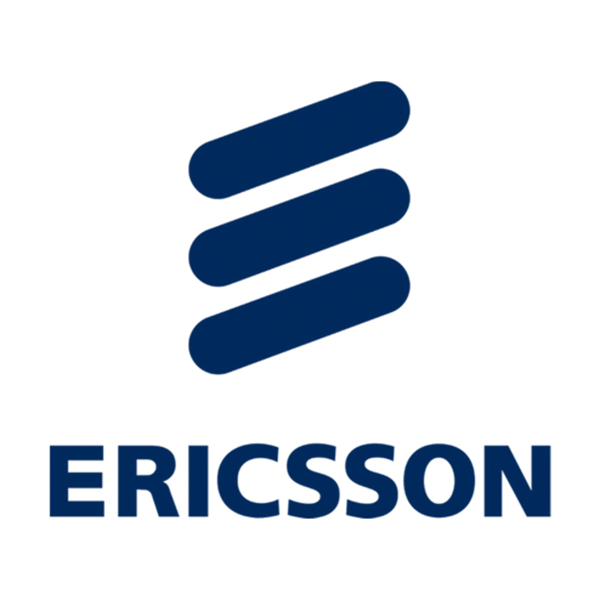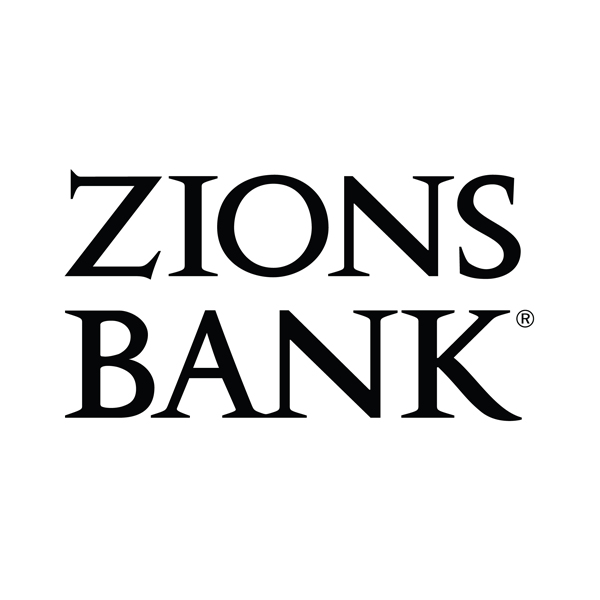CLIENT SUCCESS STORIES

Ericsson North America
Johan Bjorklund, Vice President and General Manager of Ericsson North America, attended a conference in Silicon Valley where he heard Barbara Annis talk about Gender Intelligence. He listened as she highlighted the neuroscience of gender differences and the positive impact those differences had on innovative thinking, decision-making, and teamwork. Johan’s takeaway was that gender diversity meant better business performance.
At the time, he had sales team of 20 men and didn’t think gender really mattered. But now, knowing about Gender Intelligence, he realized he was employing only half the talent pool. He decided to experiment and measure progress by adding 10 women to his sales team. In the first year, the group’s sales tripled from USD$500 million to $1.5 billion.
Moreover, through a Gender-Intelligent lens, Johan was now able to see beyond the blind spots of the past, identify non-inclusive behavior, and either coach or take action. He saw to it that every member of the sales team attend a Gender Intelligence workshop, understand how to walk the talk, and become Gender Intelligence ambassadors.
At the end of that first year, the team of 30 were rated the most engaged sales team at Ericsson worldwide, prompting the CEO, Börje Ekholm, to fly from Stockholm to Seattle to learn what Johan was doing to create a sales team so effective and successful.
Johan Bjorklund, Vice President and General Manager of Ericsson North America, attended a conference in Silicon Valley where he heard Barbara Annis talk about Gender Intelligence. He listened as she highlighted the neuroscience of gender differences and the positive impact those differences had on innovative thinking, decision-making, and teamwork. Johan’s takeaway was that gender diversity meant better business performance.
At the time, he had sales team of 20 men and didn’t think gender really mattered. But now, knowing about Gender Intelligence, he realized he was employing only half the talent pool. He decided to experiment and measure progress by adding 10 women to his sales team. In the first year, the group’s sales tripled from USD$500 million to $1.5 billion.
Moreover, through a Gender-Intelligent lens, Johan was now able to see beyond the blind spots of the past, identify non-inclusive behavior, and either coach or take action. He saw to it that every member of the sales team attend a Gender Intelligence workshop, understand how to walk the talk, and become Gender Intelligence ambassadors.
At the end of that first year, the team of 30 were rated the most engaged sales team at Ericsson worldwide, prompting the CEO, Börje Ekholm, to fly from Stockholm to Seattle to learn what Johan was doing to create a sales team so effective and successful.

Zions Bank
Scott Anderson, CEO of Zions Bank, reached out to the Gender Intelligence™ and declared that he wanted to embark on Gender Intelligence for Zions. We began with our Accelerated Breakthrough Results (ABR) cultural diagnostic. Interestingly, we found virtually no differences in the responses of men and women in how they felt about opportunities for advancement, being treated with respect, and feeling engaged.
In our diagnostic, we often see gender gaps, sometimes extreme, in these three areas. The experiences women have at senior levels banking and financial services are often not as fulfilling as it is for their male peers. The reason for no differences in the responses at Zions, we discovered, was that Scott Anderson had been working at creating an inclusive corporate culture for the past three years, encouraging and empowering both men and women equally.
The findings of the ABR diagnostic had a huge impact at Zions and influenced the company to reinvent their D&I strategy. They began rolling out Gender Intelligence workshops among the senior executives, and are now committed to ensuring that all bank personnel, including bank tellers, are certified Gender-Intelligent.
Zions is currently in the middle of Gender Intelligence Certification for its entire employee population.

Deloitte Canada
Although Deloitte Canada had been putting a great deal of effort in recruiting women as part of their Attraction Retention of Top Talent (ARTT) program, they were still experiencing a 27 percent turnover among women accountants versus 10 percent among men.
They embarked on the Gender Intelligence solution and rolled out 157 Men and Women Leading Together workshops across the Canadian division, engaging with their partners, senior managers, and managers.
Participants learn of breakthroughs in neuroscience and the discoveries of gender differences in how women and men process information, rationalize situations, communicate, and make decisions. Many, for the first time, were made aware of studies that show the advantages of gender-blended teams to innovation, productivity, client satisfaction, and profitability.
Within 18 months, Deloitte Canada reduced the turnover rate of women to 11 percent, saving the firm over USD$40 million a year in recruitment and compensations costs. Moreover, women as a percent of senior management grew to 40 percent and became the most inclusive culture of any accounting firm we’ve encountered since.
Additionally, Deloitte began to view partnership in a new light and was the first company in its industry to focus on retaining women as partners with less than full-time work commitments. The program was so popular that upon request, was extended to male partners as well.

Guardian Insurance
In survey after survey, women have consistently expressed dissatisfaction with financial service professionals. They’re seldom recognized in agent-client meetings and many don’t feel that their particular investment and security needs are being addressed.
The startling result of all of this misunderstanding is that 70 percent of women fire their male advisor within a year of their husband’s death and many of them seek out female advisors instead. For years though, attracting and retaining female agents into the industry has remained a challenge.
Emily Viner, Vice President of Agency Growth and Development saw this as a wake-up call for Guardian Insurance to put a sharper focus on retaining female clients while increasing their base of female advisors.
Guardian rolled out Gender Intelligence workshops across their regional agency offices and facilitated Women in Leadership workshops for their women’s networks, encouraging women in becoming more self-initiating in navigating their careers. The agencies that participated in the workshops became committed to bringing Gender Intelligence to every aspect of their business practice—from recruitment and training of women advisors to Gender-Intelligent client engagements.
As a result, Guardian experienced a significant increase in the number of women in mid-level management while male advisors gained new insights in how to strengthen their relationships with female clients. And for the first time ever, and for two years in a row, a woman had been named Guardian Insurance’s New Advisor of the Year.

Guardian Insurance
In survey after survey, women have consistently expressed dissatisfaction with financial service professionals. They’re seldom recognized in agent-client meetings and many don’t feel that their particular investment and security needs are being addressed.
The startling result of all of this misunderstanding is that 70 percent of women fire their male advisor within a year of their husband’s death and many of them seek out female advisors instead. For years though, attracting and retaining female agents into the industry has remained a challenge.
Emily Viner, Vice President of Agency Growth and Development saw this as a wake-up call for Guardian Insurance to put a sharper focus on retaining female clients while increasing their base of female advisors.
Guardian rolled out Gender Intelligence workshops across their regional agency offices and facilitated Women in Leadership workshops for their women’s networks, encouraging women in becoming more self-initiating in navigating their careers. The agencies that participated in the workshops became committed to bringing Gender Intelligence to every aspect of their business practice—from recruitment and training of women advisors to Gender-Intelligent client engagements.
As a result, Guardian experienced a significant increase in the number of women in mid-level management while male advisors gained new insights in how to strengthen their relationships with female clients. And for the first time ever, and for two years in a row, a woman had been named Guardian Insurance’s New Advisor of the Year.

IBM
After years of striving to achieve gender equality, company leaders were perplexed by the accelerating turnover of women in middle management and scant representation of women at the top.
For years, the sales and technical divisions at IBM posted the best track records for recruiting women, yet both faced challenges in retaining them. In two years, the company’s sales force had declined from 48 percent women to 18 percent.
Company leaders recognized the high cost of turnover and severe loss of women talent as critical issues that needed resolution. They engaged the Gender Intelligence™ to assist the Diversity Task Force in uncovering the reasons for the high turnover in middle management and lack of representation of women leaders.
Both men and women at first resisted the attempts by the task force. Some of the women at the senior level were concerned that there was too much focus on helping women versus allowing women to achieve or fail on their own; and men were reluctant for fear of reverse discrimination.
During the course of the Accelerated Breakthrough Results (ABR) cultural diagnostic and roll out Gender Intelligence workshops, the misinterpretations and assumptions that divided women and men began to disappear.
Within two years, women’s representation in IBM’s sales force doubled, but not at the expense of men’s representation. The pie simply got larger. For in the same period of time, new revenue in small to medium businesses, a significant percentage of which are owned by women founders and entrepreneurs, increased by USD$850 million.

American Express
After attending a Gender Intelligence session along with the company’s senior management, the company’s CEO, Kenneth Chenault was convinced. He soon declared that increasing the company’s understanding of the value of gender differences in communication, problem solving, and decision-making would take precedence at all levels of the organization and across all business units.
Gender Intelligence™ facilitated workshops from the top of the company through mid-management level, bringing greater awareness to the science of gender differences; the business case for gender diversity; and ways they can apply that learning to key operations, functions, and processes.
Within two years, it was commonplace during strategic planning sessions and team meetings throughout the company to hear men and women check themselves by asking, “Are we being gender-intelligent about this?”, confirming their intent to strive for complement in problem solving and decision-making.
The economic value of Gender Intelligence proved itself in many ways. One in particular was in the collection of delinquent accounts. While other credit card companies were stuck on using assertive language and intimidation to encourage payment, AMEX took a different tone by listening to explanations and finding solutions with its cardholders. As a result, collection on delinquent accounts increased 85 percent due to the changes in the call center’s tack and style of communication.
